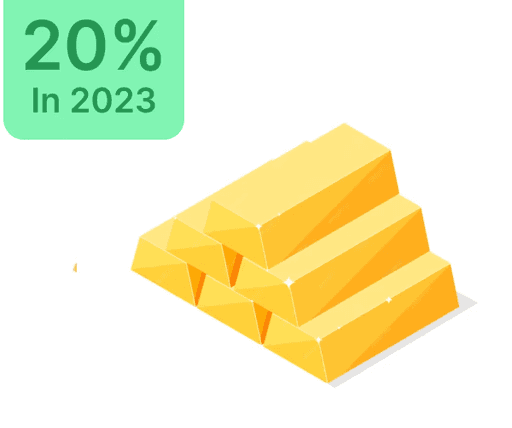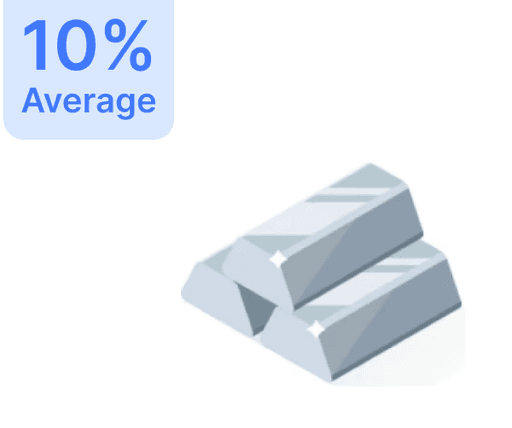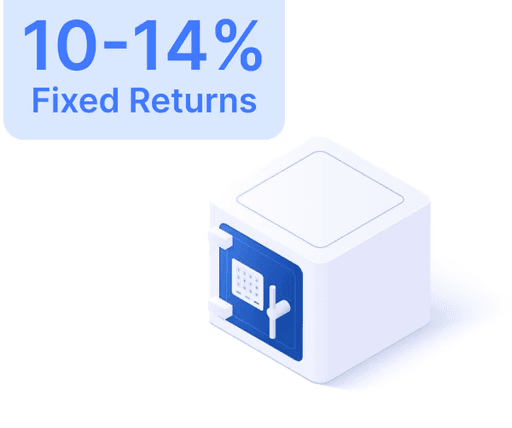
UCO Bank Recurring Deposit (RD) Interest Rates 2024

 Apr 30, 2024
Apr 30, 2024 6 Mins
6 MinsUCO Bank presents recurring deposits through its 'UCO Sowbhagya RD Scheme,' featuring an enticing interest rate of 5.55%. Additionally, senior citizens can benefit from an extra 0.50% interest rate above the standard rates.
Recurring deposits stand out as a favored investment option for many due to their flexibility and low initial deposit requirement.
By setting aside a portion of your monthly income as a deposit and witnessing it grow with UCO's appealing recurring deposit interest rates, you can accumulate a significant sum for unforeseen expenses.
Eligibility Criteria for Recurring Deposit
Here are the eligible entities allowed to open a recurring deposit account with UCO Bank:
Resident Indians.
Joint account holders, where two or more individuals can jointly open an account, each having equal rights.
Minors aged 10 years and above, represented by their legal guardians.
Registered institutions and joint companies.
In the case of joint accounts, each holder is considered the beneficiary for the other. This means that if one account holder passes away, the other automatically becomes the legal nominee.
Documents Required for RD in UCO Bank
Here are the documents required for opening an account:
Bank-prescribed account opening application form
Copies of PAN card
Two passport-size photos of the applicant
Any valid identity proof
Any valid address proof
Types of UCO Bank Recurring Deposit Schemes
- In the financial system, there are numerous deposit plans. They are classified into the following categories based on the time period during which they are valid:
- Short-term Deposits: Ranging from 6 months to 3 years, suitable for fostering saving habits.
- Medium-term Deposits: Extending from three to seven years, offering a balance between flexibility and commitment.
- Long-term Deposits: Ideal for those seeking returns without a lump sum investment, allowing monthly installments with tenure restrictions similar to fixed deposits.
UCO Bank RD Premature Withdrawal Facility
If an individual opts for premature withdrawal of their investments, they will incur a penalty charge. UCO Bank imposes a penalty of 2% less than the lower of the following: the applicable interest rate on the redemption date or the interest rate corresponding to the period for which the deposit was held by the bank.
Tax Exemptions on UCO Bank RD
If the total interest earned on all your UCO Bank RDs across branches exceeds Rs. 10,000 in a year, the bank deducts 10.3% TDS. If your IT PAN is not updated in the bank records, the TDS deduction is doubled to 20.6%. Therefore, it's crucial to ensure your PAN is updated for your RD accounts.
In addition to TDS, you must include the interest income from your UCO Bank RDs and other RDs in your taxable income for the year. The income tax is calculated based on your tax bracket. It's advisable to estimate your interest income and other earnings to pay advance tax on the specified dates (15th Sep, 15th Dec, 15th March, and 31st March).
UCO Bank issues Form 16A to customers, providing details of the deducted tax on RD interest deposited with the government treasury.
How to Open a Recurring Deposit Account in UCO Bank?
Opening a Recurring Deposit account is a straightforward process, accessible through both offline and online channels.
Online:
For the online route, individuals must first establish a Savings account with the bank to utilize net banking for RD account application.
Existing UCO Bank customers can effortlessly initiate the process by logging into their accounts using their net banking credentials and immediately opening an e-RD.
New customers need to first establish an account. Once their account is operational, they can proceed to log in to net banking and set up an e-RD.
Offline:
As for the offline method, individuals must visit their nearest UCO Bank branch and furnish duly completed account opening forms along with requisite documents. Upon submission of the completed forms and KYC documents, the bank will undertake verification procedures and notify individuals upon the activation of their account.
How to Calculate the Maturity Amount on UCO Bank RD?
UCO Bank, akin to numerous other financial institutions and NBFCs, furnishes investors with insights into the potential corpus they could amass based on their monthly investment and the tenure of the deposit.
This information empowers investors to make well-informed decisions concerning their investment and the optimal duration for which they should maintain their principal invested.
The formula utilized for calculating the maturity amount is expressed as follows:
A = P*(1+R/N)^(Nt)
Here, A represents the maturity amount, P denotes the monthly deposit amount, N signifies the compounding frequency (number of quarters), R indicates the interest rate, and t denotes the tenure.
For instance, assume priya has invested Rs. 10,000 in a UCO Bank RD for 5 years at an interest rate of 6.5%. The maturity amount would then be Rs. 7,09,902, comprising the principal investment of Rs. 6,00,000 and an interest amount of Rs. 1,09,902.




